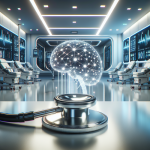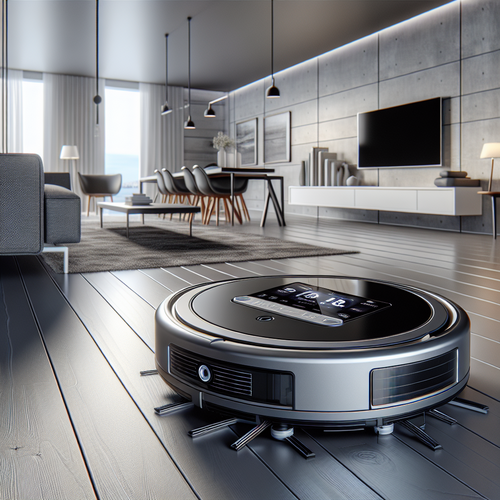
Unlocking the Potential of AI in Healthcare Diagnostics
Unlocking the Potential of AI in Healthcare Diagnostics
The integration of Artificial Intelligence (AI) into healthcare diagnostics is revolutionizing the quality and efficiency of medical care. AI technology promises enhanced diagnostic accuracy and speed, providing significant benefits to both healthcare providers and patients. This article explores the groundbreaking impact of AI on diagnostics and what the future holds.
Benefits of AI in Diagnostics
One of the major advantages of AI in healthcare diagnostics is its ability to analyze complex medical data with remarkable precision, thereby reducing human error. For instance, AI-powered tools can quickly process and interpret imaging data from MRIs, CT scans, and X-rays, offering physicians more reliable insights for diagnosis and treatment planning.
AI in Radiology
AI is becoming particularly impactful in radiology, where it assists in identifying patterns imperceptible to the human eye. According to a recent post on deepfake detection, AI algorithms trained on vast amounts of image data outperform traditional methods by continuously learning and improving over time.
Radiologists now employ AI tools to augment their decision-making processes, which helps in detecting conditions such as cancers or neurological disorders more accurately and at an earlier stage.
AI and Pathology
Pathology is another field witnessing AI’s transformative impact. AI systems analyze biopsy samples, identify malignancies, and quantify tumor characteristics faster than ever before. This rapid and accurate analysis leads to better patient outcomes and more customized treatment strategies.
Challenges and Solutions
Despite its potential, the implementation of AI in healthcare diagnostics is not without challenges. Chief among these are technical limitations, data privacy concerns, and the need for rigorous regulatory standards to safeguard patient safety.
- Data Privacy: To protect patient data, AI diagnostic tools must comply with strict healthcare regulations, such as HIPAA in the United States.
- Integration: Efficient integration into existing healthcare systems is required for AI to be fully effective. This involves collaboration between AI developers and healthcare professionals to create user-friendly, secure systems.
- Training: Healthcare staff must receive adequate training to effectively leverage AI tools, ensuring they can interpret AI-generated insights correctly.
Fortunately, many tech companies are actively addressing these issues by developing advanced security features, enhancing data governance, and working closely with regulatory bodies.
The Future of AI in Healthcare Diagnostics
The future seems bright for AI in healthcare diagnostics. Innovations in deep learning and neural networks are expected to drive further advancements in diagnostic precision and expand the scope of AI applications.
Consequently, AI will likely play a pivotal role in personalized medicine by analyzing a combination of genetic data, clinical history, and environmental factors to offer individualized treatment plans.
Conclusion
AI’s integration into healthcare diagnostics marks a significant step forward in medical innovation. As these technologies mature and become more sophisticated, the potential to transform healthcare delivery and improve patient outcomes will grow exponentially. For those interested in more about the impact of AI in healthcare, check out our AI in Mental Health Solutions post.












